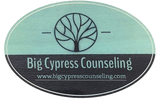Adult Services
Individual therapy, or “one-on-one” therapy, is a component of each treatment plan. Each client is assigned a primary therapist who will provide individual therapy sessions. Therapists allow clients to lead the discussion and do not try to steer the client in a particular direction while showing complete acceptance and support without casting judgment.
Group therapy allows clients and staff to gather for discussions on a variety of wellness-related topics. The group setting helps to alleviate the isolation felt by many individuals who are coping with mental health, social, and relationship issues as well as drug and alcohol problems. These therapy groups help to educate and inform clients on topics such as stress management, building support systems, and finding meaning and purpose in life.
Family therapy is an integral component of the therapy process. With the client’s consent, we recommend family (e.g. spouses, partners, children, and other loved ones) involvement in the treatment process. Family encouragement and participation in all forms of treatment can support the client during difficult times and help to improve relationships. Through group education and support, family members can learn coping strategies to help their loved ones. Family therapy sessions will be held onsite or via conference call, and frequency will be determined according to the client’s individualized treatment plan.
Couples therapy is beneficial for any kind of relationship, whether dating, engaged, or married, regardless of sexual orientation, race, or religion. For example, a recently engaged couple might find premarital counseling an invaluable opportunity to address relationship expectations prior to getting married. Another couple, together 25 years, might discover couples therapy is an effective way for them to regain a sense of excitement and romance in their relationship. Couples therapy can resolve a current problem, prevent exacerbation of problems or simply provide a “check-up” for a happy couple that is experiencing a period of transition or increased stress. Common areas of concern addressed in couples therapy include issues with money, parenting, sex, infidelity, in-laws, chronic health issues, infertility, gambling, substance use, and emotional distance.
Group therapy allows clients and staff to gather for discussions on a variety of wellness-related topics. The group setting helps to alleviate the isolation felt by many individuals who are coping with mental health, social, and relationship issues as well as drug and alcohol problems. These therapy groups help to educate and inform clients on topics such as stress management, building support systems, and finding meaning and purpose in life.
Family therapy is an integral component of the therapy process. With the client’s consent, we recommend family (e.g. spouses, partners, children, and other loved ones) involvement in the treatment process. Family encouragement and participation in all forms of treatment can support the client during difficult times and help to improve relationships. Through group education and support, family members can learn coping strategies to help their loved ones. Family therapy sessions will be held onsite or via conference call, and frequency will be determined according to the client’s individualized treatment plan.
Couples therapy is beneficial for any kind of relationship, whether dating, engaged, or married, regardless of sexual orientation, race, or religion. For example, a recently engaged couple might find premarital counseling an invaluable opportunity to address relationship expectations prior to getting married. Another couple, together 25 years, might discover couples therapy is an effective way for them to regain a sense of excitement and romance in their relationship. Couples therapy can resolve a current problem, prevent exacerbation of problems or simply provide a “check-up” for a happy couple that is experiencing a period of transition or increased stress. Common areas of concern addressed in couples therapy include issues with money, parenting, sex, infidelity, in-laws, chronic health issues, infertility, gambling, substance use, and emotional distance.
Intervention Planning
Admitting you are struggling with drugs and alcohol is difficult. When a loved one is struggling with drug or alcohol addiction, it’s difficult to talk about entering a treatment program. In addition, denial may be a major deterrent to recovery. It often takes the encouragement of loved ones, led by an intervention specialist, to help them get the help they need.
Planning an intervention can be difficult, and our intervention specialist professional can help the client’s family participate in an intervention experience that outlines a plan with options that are agreed upon with the client. Our therapists will guide the intervention discussion around the circumstances of your loved one’s substance abuse and formulate a plan that works best for everyone.
With the combined efforts of the client’s family and the team, we can create an effective and individualized plan to help your loved one realize that now is the time to get help for the dangerous, progressive disease of addiction.
Admitting you are struggling with drugs and alcohol is difficult. When a loved one is struggling with drug or alcohol addiction, it’s difficult to talk about entering a treatment program. In addition, denial may be a major deterrent to recovery. It often takes the encouragement of loved ones, led by an intervention specialist, to help them get the help they need.
Planning an intervention can be difficult, and our intervention specialist professional can help the client’s family participate in an intervention experience that outlines a plan with options that are agreed upon with the client. Our therapists will guide the intervention discussion around the circumstances of your loved one’s substance abuse and formulate a plan that works best for everyone.
With the combined efforts of the client’s family and the team, we can create an effective and individualized plan to help your loved one realize that now is the time to get help for the dangerous, progressive disease of addiction.
Intensive Outpatient Program
Intensive outpatient is a structured program that provides group, individual, and family therapy for adults that are impacted by substance abuse. Clients in IOP usually visit our facility three to four times per week for three hours at a time. IOP provides a higher level of care than standard outpatient programs, and this allows for more time to be spent in treatment each week to work on resolving personal issues and building a recovery support system.
Intensive outpatient is a structured program that provides group, individual, and family therapy for adults that are impacted by substance abuse. Clients in IOP usually visit our facility three to four times per week for three hours at a time. IOP provides a higher level of care than standard outpatient programs, and this allows for more time to be spent in treatment each week to work on resolving personal issues and building a recovery support system.
Big Cypress Counseling
Home
|
|
Proudly powered by Weebly



